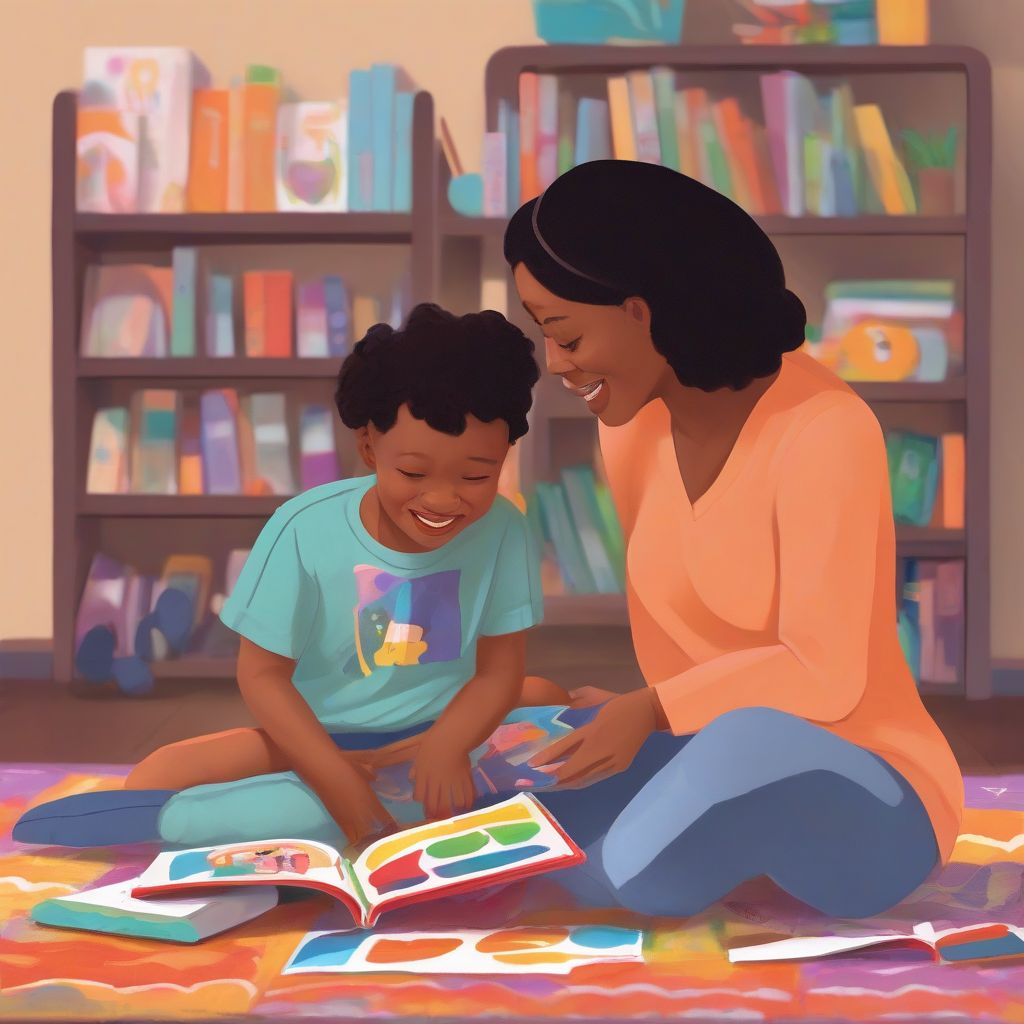“Every word matters” might be a cliche when choosing your dialogue for a big presentation, but when it comes to toddlers, it’s a mantra for unlocking a world of communication and connection. As a nutritionist and meal planning expert, I understand the power of providing the right nourishment for growth, and language is no exception! Just as we carefully select ingredients to fuel our bodies, we can cultivate language-rich environments to nourish our little one’s minds.
This isn’t about pushing flashcards or expecting Shakespearean sonnets before preschool. This is about nurturing a love for language through simple, joyful, everyday interactions.
Understanding the Building Blocks of Language
Before we dive into the “how-to,” it’s helpful to appreciate the amazing journey toddlers embark on as they learn to communicate. It’s a process that begins long before those first words are spoken.
From Cooing to Conversing: The Stages of Language Development
- Listening and Responding (0-6 months): Your baby is already a language learner, tuning into sounds, recognizing your voice, and responding with coos and gurgles.
- Babbling and Experimenting (6-12 months): “Ba-ba-ba” and “ma-ma-ma” aren’t just adorable; they’re the building blocks of speech. Your little one is experimenting with sounds and mimicking what they hear.
- First Words and Beyond (12-18 months): That magical moment arrives when they utter “mama,” “dada,” or another meaningful word. They begin to understand simple instructions and point to objects they want.
- Early Sentences and Expanding Vocabulary (18-24 months): Two-word phrases emerge (“want milk,” “more book”), and their vocabulary explodes as they soak up new words like sponges.
 A baby looking intently at their mother, who is smiling and interacting with them
A baby looking intently at their mother, who is smiling and interacting with them
Practical Tips to Encourage Early Language Development
Now that we understand the developmental milestones, let’s explore practical strategies you can incorporate into your daily routine:
1. Talk, Talk, Talk!
It sounds obvious, but simply talking to your toddler, even before they can respond, is crucial. Narrate your day, describe what you’re doing, and use a rich and varied vocabulary. Don’t underestimate their ability to absorb even complex words.
Expert Tip: Avoid using baby talk exclusively. While it’s tempting to mimic their adorable mispronunciations, it’s important to model correct pronunciation and grammar.
2. Turn Everyday Moments into Language Opportunities
Think of yourself as your toddler’s personal tour guide through life!
- Mealtimes: Describe the foods you’re preparing and eating. “Look, these carrots are orange and crunchy!”
- Bath Time: Make it a sensory experience. “The water feels warm and bubbly on your skin.”
- Playtime: Engage in pretend play and narrate the actions. “The teddy bear is having a tea party with his friends!”
3. Read Together Every Day
Reading aloud is a superpower! It exposes toddlers to new words, sentence structures, and different genres.
Tips for Engaging Reading:
- Choose books with colorful illustrations and simple stories.
- Use different voices for the characters.
- Ask questions: “What do you think will happen next?” “Can you point to the cat?”
- Make it interactive: Let your toddler turn the pages and chime in with animal sounds or repeated phrases.
 A parent sitting on the floor with a toddler in their lap, both looking at a brightly colored picture book
A parent sitting on the floor with a toddler in their lap, both looking at a brightly colored picture book
[amazon bestseller=”toddler books”]
4. Sing Songs and Nursery Rhymes
Music is naturally engaging for little ones. Songs and rhymes are packed with repetitive phrases, rhyming words, and predictable patterns that help with language acquisition.
Fun Tip: Don’t just play recordings; sing along! Your toddler will love watching you and trying to mimic your actions and sounds.
5. Encourage Back-and-Forth Communication
Conversations aren’t just about talking; they’re about listening and responding.
- Give them your full attention: Put down your phone, make eye contact, and show genuine interest in what they’re “saying,” even if it’s just babbles or gestures.
- Follow their lead: If they’re pointing at a bird, say, “Yes, that’s a bird! It’s singing a pretty song.”
- Pause and wait: Give them time to process what you’ve said and formulate a response.
6. Limit Screen Time
While educational apps and shows have their place, nothing can replace the richness of real-life interactions. The American Academy of Pediatrics recommends limiting screen time for children under 18 months (except for video chatting).
7. Create a Language-Rich Environment
Surround your toddler with opportunities to learn and explore language.
- Label objects around the house: “Chair,” “table,” “window.”
- Provide age-appropriate toys: Blocks, shape sorters, and puzzles all help with cognitive and language skills.
- Visit the library: Library story times are fantastic for socialization and language exposure.
8. Be Patient and Positive
Remember, every child develops at their own pace. Celebrate their milestones, big and small, and provide lots of encouragement. Your love and support are the most important ingredients in their language journey.
Conclusion
Encouraging your toddler’s language development is about creating a world of wonder and connection through simple, joyful interactions. By talking, reading, singing, and playing together, you’re not just building a vocabulary; you’re building a foundation for lifelong learning and communication. So, embrace the babbles, the mispronunciations, and the endless questions. These are the sounds of your little one’s language blossoming!
What are your favorite ways to engage your toddler in language-rich activities? Share your tips and experiences in the comments below!
